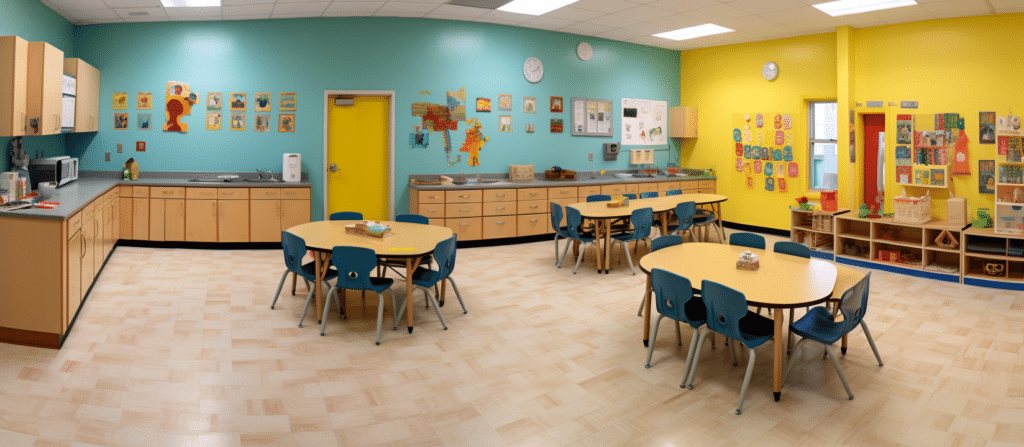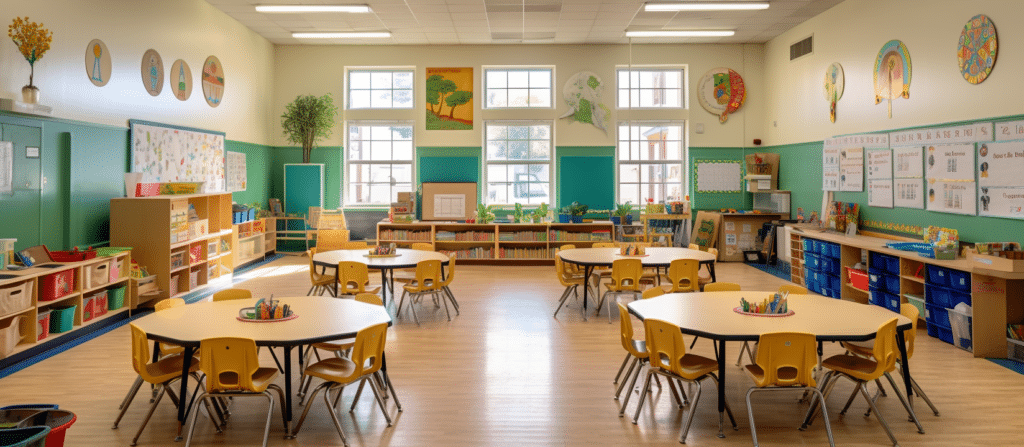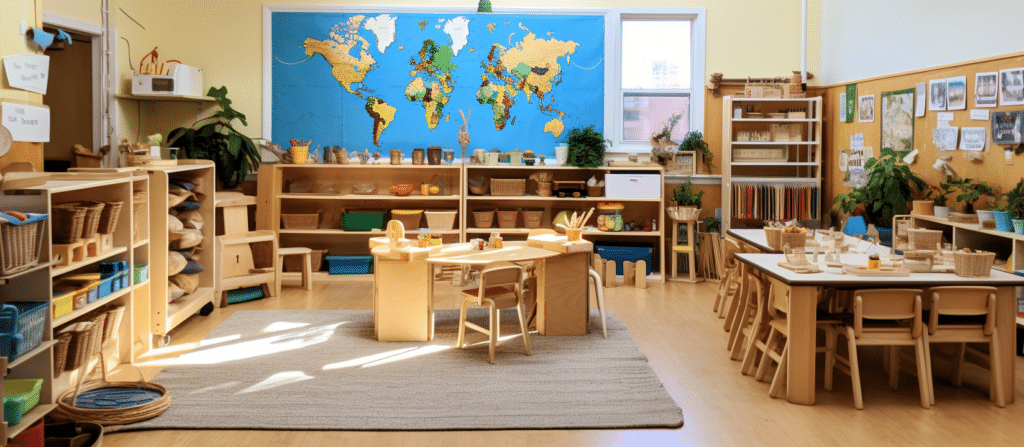Are you searching for ways to create an enriching daycare environment that supports cognitive development in young children? The right furniture can make a significant difference. This article explores the importance of daycare furniture for mental development activities, addressing the need for age-appropriate, engaging, and educational solutions.
Daycare furniture for cognitive development activities is crucial in fostering a conducive learning environment. It encompasses a range of purposeful pieces designed to stimulate children’s mental growth and skills.
Why is daycare furniture important for cognitive development?
Cognitive development refers to the growth of a child’s thinking, problem-solving, and reasoning skills. During the early years, children’s brains are rapidly developing, and they are particularly sensitive to their environment. Providing them with the right furniture can have a profound impact on their cognitive growth.
Research has shown that well-designed furniture can promote cognitive development by providing opportunities for exploration, imagination, and problem-solving. It can also support the development of fine motor skills, spatial awareness, and social interaction. By incorporating engaging furniture into daycare settings, we can create an environment that fosters cognitive growth.

What types of furniture are ideal for cognitive development activities?
- Flexible Seating: Providing children with a variety of seating options allows them to choose what works best for their individual needs. Flexible seating promotes independence, decision-making, and critical thinking skills. It also encourages children to engage in group discussions and collaborate with their peers.
- Manipulative Play Tables: Manipulative play tables are designed to encourage hands-on exploration and problem-solving. These tables often have built-in features such as puzzles, gears, and sensory activities that engage children’s cognitive skills. They promote fine motor skills, hand-eye coordination, and logical thinking.
- Art and Creativity Stations: Art and creativity stations provide children with the opportunity to express their thoughts, ideas, and emotions through various art forms. These stations can include easels, drawing tables, and art supplies. Engaging in art activities enhances children’s imagination, creativity, and cognitive flexibility.
- Science Exploration Centers: Science exploration centers are designed to spark children’s curiosity and interest in the world around them. These centers can include magnifying glasses, microscopes, and sensory bins. Science activities promote critical thinking, problem-solving, and scientific inquiry.
- Reading Nooks: Creating cozy reading nooks with comfortable seating and a wide selection of age-appropriate books can ignite a love for reading and language development. Reading promotes vocabulary expansion, comprehension skills, and cognitive engagement.
- Outdoor Play Equipment: Outdoor play areas equipped with age-appropriate climbing structures, swings, and slides provide children with opportunities for physical and cognitive development. Outdoor play promotes problem-solving, risk assessment, and spatial awareness.
By incorporating these types of furniture into daycare settings, we can create an environment that supports cognitive development activities and promotes the overall wellbeing of children.

How does daycare furniture support cognitive development?
Daycare furniture plays a crucial role in supporting cognitive development in several ways:
- Promoting Exploration: The right furniture encourages children to explore their environment and engage in hands-on activities. Whether it’s a manipulative play table or an art station, these furniture pieces provide opportunities for children to discover, experiment, and learn.
- Fostering Imagination: Creative play areas, such as reading nooks and art stations, stimulate children’s imagination and encourage them to think outside the box. Imaginative play enhances cognitive flexibility, problem-solving skills, and abstract thinking.
- Enhancing Problem-Solving Skills: Furniture that requires problem-solving, such as puzzles or science exploration centers, helps children develop critical thinking skills. It challenges them to find solutions, analyze information, and make decisions.
- Supporting Social Interaction: Furniture that promotes collaboration and group work, such as flexible seating arrangements, allows children to interact with their peers. Social interaction enhances communication skills, empathy, and perspective-taking abilities.
How can daycare furniture be designed to promote cognitive development?
When it comes to designing daycare furniture for cognitive development activities, there are a few key considerations. Firstly, the furniture should be age-appropriate and safe for children. Rounded edges, non-toxic materials, and sturdy construction are essential factors to prioritize.
Secondly, the furniture should be versatile and adaptable. Modular furniture that can be rearranged to create different learning areas can keep children engaged and encourage flexible thinking. Adjustable tables and chairs can accommodate children of varying heights and promote good posture, which is crucial for concentration and focus.
Furthermore, incorporating elements of nature into the design can have a positive impact on cognitive development. Natural materials such as wood and plants can create a calming and inviting atmosphere, which in turn enhances children’s cognitive abilities.

The Impact of Daycare Furniture on Cognitive Development
Investing in high-quality daycare furniture that supports cognitive development activities is a wise decision. It not only benefits the children but also contributes to the success of your daycare business. By providing an environment that fosters cognitive growth, you are setting the stage for children to thrive academically and socially.
Conclusion
Investing in high-quality daycare furniture is not just about creating a visually appealing space; it’s about providing children with the tools they need to develop cognitively. By carefully selecting and designing furniture items that promote cognitive activities, daycare centers can create an environment that nurtures young minds and sets them on a path of lifelong learning.












